Among the younger generation of Slovenian poets, Aleš Šteger
is one of the best-known.
His recent collection The Book of Things† was translated into English by Brian Henry and won a PEN prize for the best translated book of poetry in 2011 in the United States.
In Hayrack he writes, memorably:
“Slovenian heroes sacrificed their lives
So their sons could freely dry
The contents of their skulls
In the Alpine breeze of the hayrack’s rungs
The vast meadows are their souls.
Cows chew and shit them
And out of cow shit their souls grow
Still more beautiful and succulent.Ӧ
According to Aleš, Slovenia is a country that derives its sense of identity from poetry. The main square
in Ljubljana, the capital, is named after the country’s national poet, France Prešeren.
In this sculpture the poet is courting his Muse.
Slovenian poetry, Aleš says, is more lyric than epic (the latter being the preference of some other Balkan countries – Serbia, for instance).
Ljubljana is certainly a city to inspire lyricism.
It has a charming Opera House,
picturesque streets,
quaint houses,
a splendid fort on a hill,
imposing university buildings,
a gracious Philarmonic Academy,
and the entrance to its Parliament celebrates the human body with a frankness that would be inconceivable in New Delhi or Washington.
The city’s appeal being what it is, it’s difficult to fathom why this former mayor of Ljubljana
looks so disconsolate (perhaps he was the sole epic poet in this city of lyricists?).
Did Aleš have him in mind, I wonder, when he wrote:
“Do you remember the archivist who committed suicide
Because of one misplaced sheet?
The three librarians who never returned from the warehouse?
“The history students who bit the professor’s neck in an exam
Because he could not remember the price of potato soup in May 1889?ӧ
But even an epic poet would be tempted to flirt with the lyric muse, I suspect, if he took a stroll along the Ljubljanica River,
where unexpected installations
festoon the alleyways
and streetside vendors assemble installations that illustrate their country’s history through collections of coffee pots
– Turkish cezves rubbing shoulders with Italian espresso-makers.
And the flirtation with lyricisim might well end in wedlock if the poet found his way to a riverside restaurant
that serves a superb soup of Slovenian mushrooms.
Aleš’s wife, Maja Petrovic-Šteger,
who has studied and taught anthropology at Cambridge, tells me that Slovenia’s other passion, almost on par with poetry, is mushrooms. Her mother, she says, can spot a mushroom from her car while speeding down an expressway.
The soup was good enough to remind me of another high point in my own mushroom-sampling career, which was in a village called Xizhou
in Yunnan, China,
local mushroom collectors offer an astonishing assortment of mushrooms, freshly gathered from the surrounding forests (which contain more varieties of oak than anywhere else on earth).
In a matter of minutes the little eateries around the market
transform the mushrooms
into lyric verses.
But what Ljubljana yields to Xizhou in the matter of mushrooms, it regains through its proximity to the sea, being only an hour from the Mediterranean
– which is what makes it possible for Boris
to serve a grilled branzino
so fresh that your mouth could be the net that caught it.
And then it turns out that Aleš is the founder of a festival called Days of Poetry and Wine. He orders a bottle of Rebula white from Goriska Brda and when:
“What was stored in safety escaped.
It swooshed down the throat like emptiness into the bottle.Ӥ
Who knew that wines like this, steely, with just a hint of frosty fruit, were made in Goriska Brda?
The meal ends with a confection that takes me back to Ghazipur and Sea of Poppies: poppyseed cake, apparently a specialty of this part of Slovenia.
How many of Slovenia’s lyrical verses were sprouted from poppyseeds, I wonder?
I walk away with a renewed understanding of the difference between poets and novelists: no one will ever start a festival called Days of Prose and Wine.
_________
† Boa Editions Ltd., Rochester, New York, 2010.
¶ Hayrack, The Book of Things, p. 67.
ß Coat, The Book of Things, p. 48.
§ Cork, The Book of Things, p. 63.


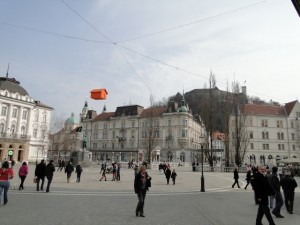
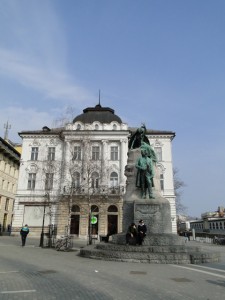
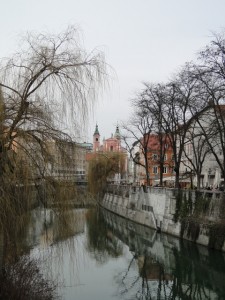
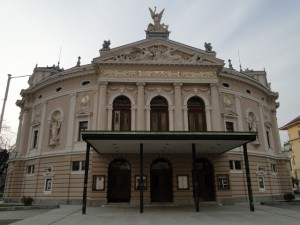
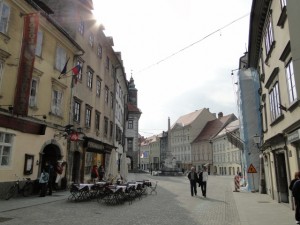
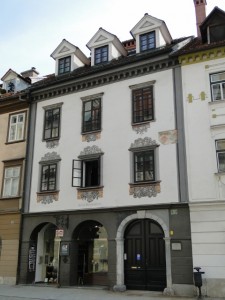
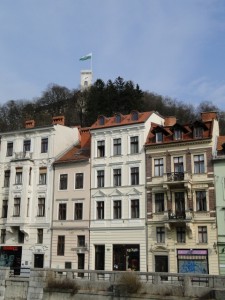

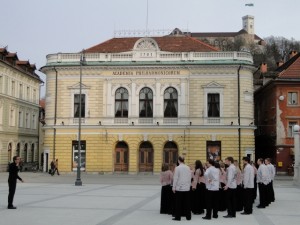
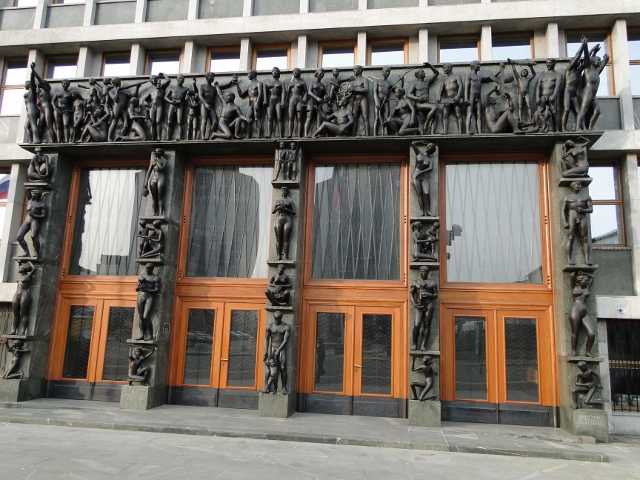
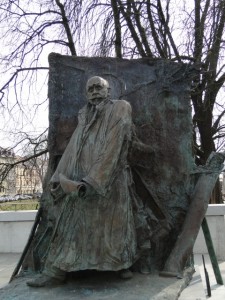
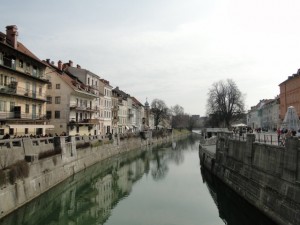
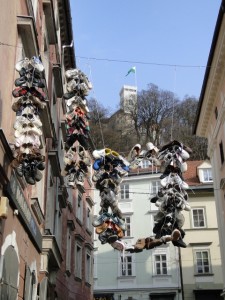
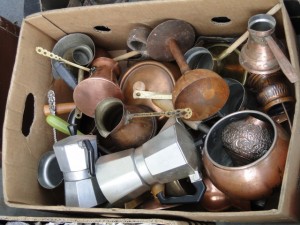
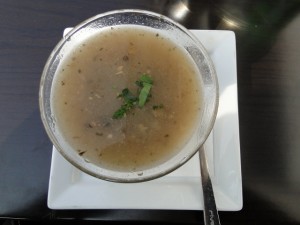
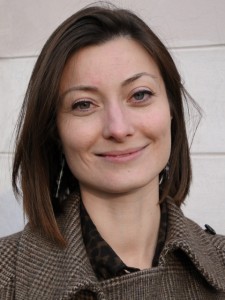
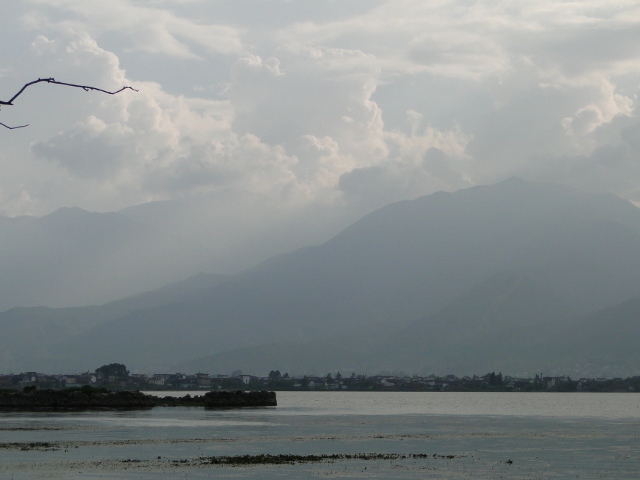
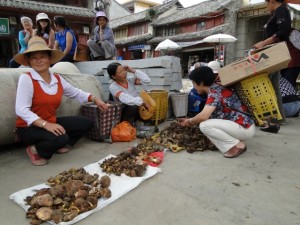

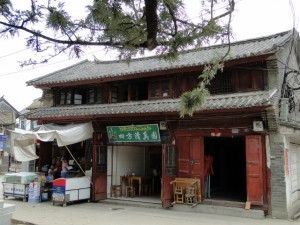
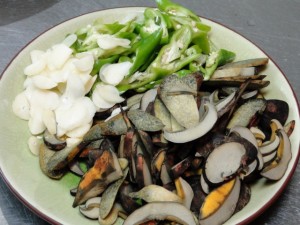
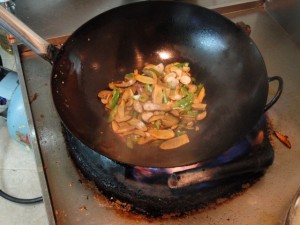
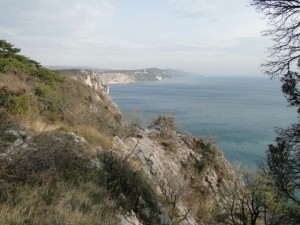

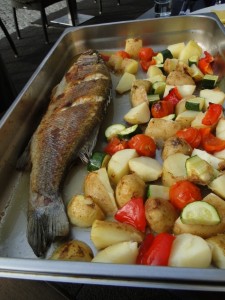
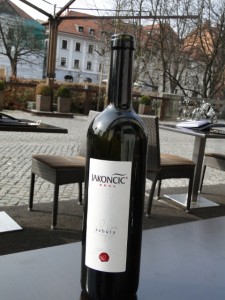
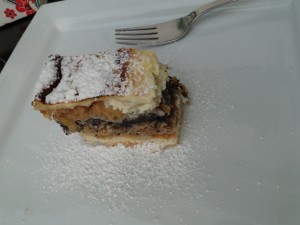
Dear Amitav,
What a lovely blog. It intersected with many things. Ales and Maja are among our dearest friends and we know many of the places so well.
My wife are GREAT admirers of Sea and River and eagerly await the next. I am writing about my ancestors who were in India and China during the times you write about – and your books could be about them.
So sorry not to see you in Cambridge, where I am a retired Professor of Anthropology. Do tell me when you come again.
You have all about me on my website above.
So lovely to see these pictures on a cold March day in the fens,
Best wishes, Alan Macfarlane
Dear Alan
It’s great to hear from you! I read ‘The Origins of English Individualism’ and ‘The Culture of Capitalism’ years ago, with the greatest interest. Ales told me about your new project. It sounds fascinating: will look forward to reading about it on your website.
Thanks very much for taking the time to write – I really appreciate it.
Best wishes
Amitav